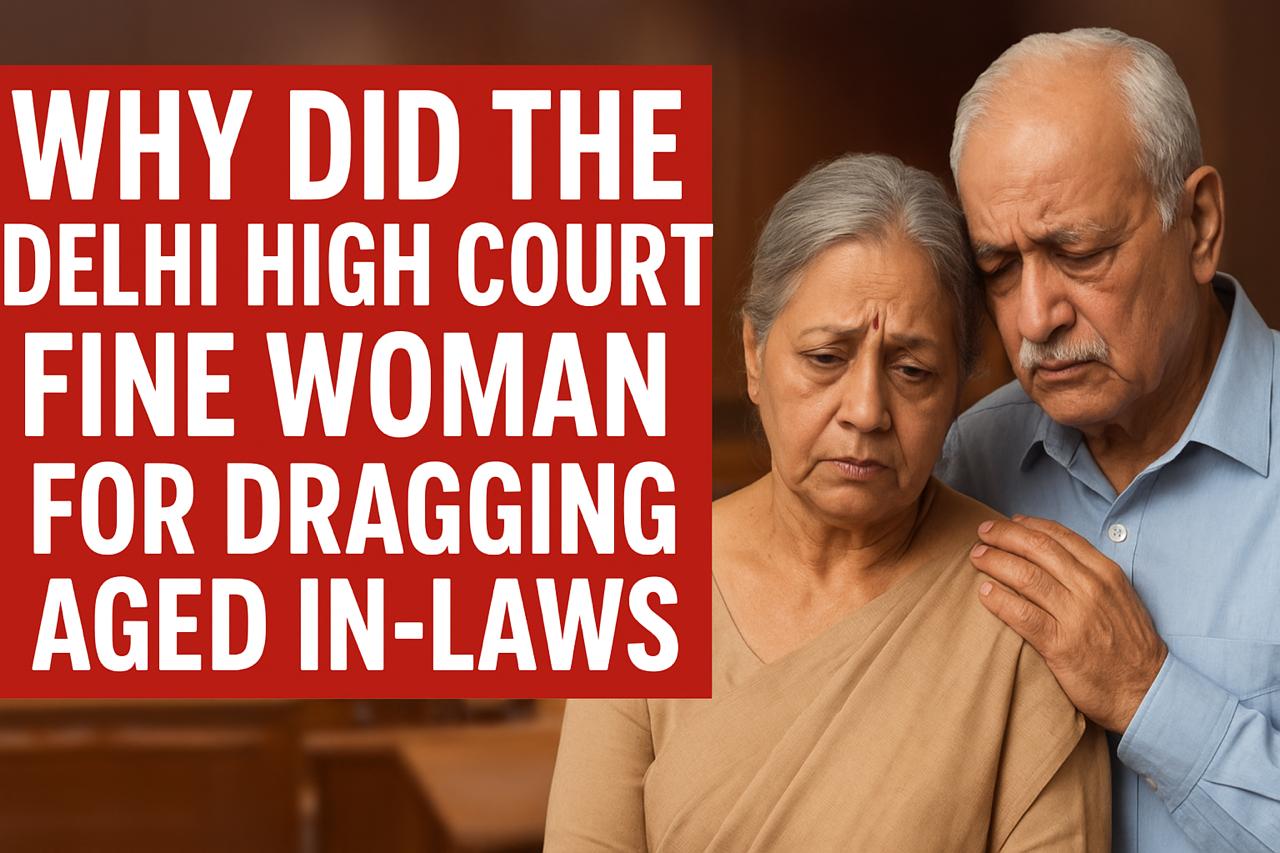Introduction: Delhi High Court Fine Marks a Turning Point for Judicial Limits
Every court has its breaking point the moment it draws a line, not in the sand, but in the fabric of justice. Last week, the Delhi High Court etched one such line, imposing a ₹50,000 fine on a woman for dragging her aged in-laws through an endless legal marathon, long after her husband’s death and her own remarriage. The story reads like a cautionary tale about the limits of legal recourse and the risks of transforming courts into arenas for spite. When the Delhi High Court fine landed, it wasn’t just about money it was a rebuke of vengeance masquerading as grievance.
Background: Delhi High Court Fine Case Against Woman for Dragging In-Laws Into Litigation
This dispute didn’t unfold overnight. After the death of her husband, the petitioner launched a battery of lawsuits against her late husband’s elderly parents, staking claims to property and demanding money. In reality, much of the original casework had been settled, or else the claims proved hollow upon closer inspection. Yet, even after moving on with her remarriage, the woman kept the wheels of litigation spinning, leaving the older couple trapped in an exhausting legal purgatory. The Delhi High Court fine, then, arrives at the end of a struggle that was as much psychological warfare as legal contest.
Judicial Rebuke: Delhi High Court Fine for Vexatious Litigation
Justice Arun Monga didn’t tiptoe around the issue. He saw through the procedural fog this was no crusade for justice but, as he described, “sheer vengeance.” The court’s observations were blunt: if a legal system is wielded only to torment, it corrupts its very purpose. “The elderly couple is entitled to dignity and peace, not endless legal harassment,” Justice Monga wrote, crystallizing the court’s frustration with parties who use the system as a cudgel rather than a shield. According to this landmark ruling, vindictiveness has no place in the corridors of justice.
Legal Implications: Delhi High Court Fine as a Warning Shot
The ₹50,000 penalty, hefty though it may seem, is as symbolic as it is fiscal. The Delhi High Court fine is meant to say: enough. Parties must not enter court in bad faith, relitigating settled or baseless matters with an eye on punishment, not justice. The court insisted that the payment be prompt and any further harassment cease. Through this, it emphasized that courts are sanctuaries for the suffering, not battlegrounds for personal vendetta. Anyone seeking to distort the right to legal access as “a weapon to oppress” can expect not just defeat, but censure.
Conclusion: Delhi High Court Fine Reinforces Boundaries and Compassion
When the Delhi High Court fine dropped, it wasn’t just another headline in the stream of legal news. It was a manifesto for responsible litigation and a clear warning: the judiciary is nobody’s playground for revenge. Most of all, it was a measure of compassion, reinforcing that the vulnerable especially the elderly deserve the law’s protection, not its endless burdens. As society ages and disputes multiply, the real cost of misusing the courts is borne by those least able to fight back.
Author Information:
By Karthikeyan Ganesan, a law student from KKC College of Law, reporting on law and technology for Nyayasphere. Karthikeyan always likes to stay updated with current trends and important information regarding the law and cases across the country.

